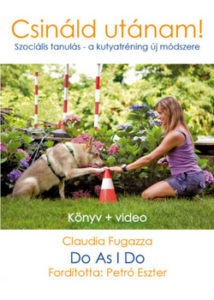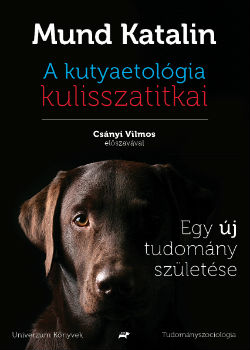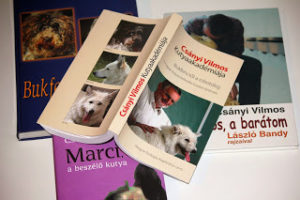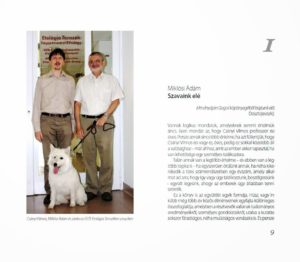Hungarian ethology foundation
Hungarian Ethology Foundation

Contact
- Hungarian Ethology Foundation - Dr. Antal Dóka
- Address: Kálmán utca 35, City: Goed, Postal code: 2132, Country: Hungary
- Tax number: 18655588-1-13
- e-mail: hunetholfound@gmail.com
Other information
- Bank: OTP 11709002-20650456
- Bank address: 1056 Budapest, Nádor u. 16. Hungary
- SWIFT code: OTPVHUHB
- IBAN code (HUF): HU62117090022065045600000000
- IBAN code (EURO): HU19117630932332388300000000
- PIC number: 892833203
- Chairman of the Board of Trustees: Dr Antal Dóka
- Members of the Board of Trustees: Dr Katalin Maros, Dr Csaba Molnár
- Date of foundation: 26 March 2015
- Registration number: Budapest District Court 13-01-0003729
Our Mission
The mission of the Hungarian Ethology Foundation is:
- To support all ethological research and education aimed at understanding the behavior of living organisms.
- To support the creation and publication of research topics, researchers, research groups, research centers, and scientific publications.
- Support for the creation and dissemination of educational topics, teachers, courses, textbooks, notes, and teaching aids.
- Support for the acquisition of experience, study, research, study visits abroad, conference participation by individuals in research or educational institutions.
- Support for the organization and organization of scientific conferences, lectures, and debates.
- Editing and publishing educational and informative publications to promote the widest possible knowledge of ethological research.
Details of the Foundation's Activities:
In order to achieve its founding objectives, the Foundation carries out the following activities in particular:
- Conducting and financially and professionally supporting behavioral science studies. In this context, financial support may be provided in the form of grants or contracts for the professionals carrying out the scientific studies.
- Establishing and developing national and international scientific and professional contacts, transferring experience, organizing study visits, participating in professional meetings, providing participation expenses, and hosting experts.
- Organizing and conducting conferences and professional meetings in the field of ethology, giving lectures, editing and disseminating publications, and writing scientific articles in the field.
- Providing financial and technical support for the editing and publishing of publications on ethology and ethology-related information and education, as well as writing.
- Inter-professional activities: training, further training, and participation in the training of professionals in the field of ethological research, providing personnel and equipment, consultancy, and examination services.
- Nature conservation and animal protection.
- Other activities related to the basic objective not specified above.
- Exercising employer's rights to carry out these activities, for which the executive officers may receive an allowance.
- Generating revenue in relation to the activities listed but providing services related to the basic objective only free of charge, at cost, or below market price.
- Covering the costs and expenses incurred to achieve its purpose.
Hungarian Ethology Foundation - Our Books
"Do As I Do" - Dog Training
Is it possible to train dogs through social learning? Yes! Thanks to the work of Hungarian researchers, there is clear evidence that dogs can learn new actions and tasks by observing people. The "Do As I Do" method can also be useful for training assistance and therapy dogs, as well as other working dogs. This method can even be helpful for family dogs if you want your pet to be able to learn more complex tasks. But the Do As I Do method has another advantage: dog owners who use this method can create much deeper relationships with their dogs, which can be put to good use in other areas of life.
The book includes a video to help you get started and learn the method.
However, the Do As I Do method is constantly evolving.
You will find the information you need to download the video in the book.
The Hungarian translation is by Eszter Petró.
The book is available for purchase from Galaktika Publishing.
Behind the scenes of canine ethology
 What do dogs think about? Can they count? How do they show their attachment? How can they help develop robots? These and similar questions are on the minds of ethologists. The book shows how experiments can be used to scientifically prove what owners have always known: dogs are man's best friend.
What do dogs think about? Can they count? How do they show their attachment? How can they help develop robots? These and similar questions are on the minds of ethologists. The book shows how experiments can be used to scientifically prove what owners have always known: dogs are man's best friend.
Dr Katalin Mund, a sociologist of science, used the methods of cultural anthropology to observe the work of ethologists at the Department of Ethology at ELTE when they study dogs. What is a sociologist who knows little about dogs doing in the ethology department? Well, sociology as a science dealing with society is interested in many things. Among other things, how is a new discipline born and how does science work?
Today, the Department of Ethology at ELTE is at the forefront of the scientific field. This book helps us to understand the bumpy road that researchers have had to travel to create and bring to the world stage a previously non-existent scientific field, cognitive dog ethology, the discipline of how dogs think. The book seeks to answer the question of how a particular discipline can be cultivated in our country, i.e. what individual and group strategies are needed to develop and sustain a discipline in our country. What difficulties do researchers face? What non-scientific activities are needed to make a research team work? What social factors play a role in the success of a group? It describes in detail how ethologists work, what hypotheses they base their work on, how they carry out experiments and how they interpret the data from their experiments.
This book is a fascinating read for dog lovers and ethology enthusiasts alike, but it is also a must-read for those who want to understand the general workings of science.
The book not only lifts the veil on the mysteries of an emerging new discipline, but also helps us to think about dogs, the thoughts of dogs, and perhaps a little about what comes next, what comes after dogs.
Price. 2990 Ft. Available at the Department of Ethology of ELTE (Budapest, Pázmány Péter sétány 1/c, 6th floor), on working days between 10-16 hours at Bereczky Boroka (map, tel. 06 1 3812179). E-mail: hunetholfound@gmail.com, and in Galaktika Shop with 20% discount.
The author is Dr. Katalin Mund. Born in 1971 in Budapest, Hungary. In 1998, she graduated from the Tan Kapuja Buddhist College with a degree in religious philosophy. In 2003 she graduated from the Faculty of Social Sciences of ELTE. Her fields of expertise are sociology of science and sociology of religion, religion and science. His doctoral thesis was on the sociological analysis of the work in the Department of Ethology at ELTE.
Vilmos Csányi's Dog Academy
Vilmos Csányi's credo is conversation, togetherness and the exchange of ideas. This book is also a form of togetherness. It is a synthesis of more than twenty years of research, in which the participants talk about their results, their thoughts, the inevitable difficulties of research, scientific, personal and amusing situations.
Vilmos Csányi has not only done much to lay the foundations of Hungarian ethology, but he was also a midwife in the birth of canine ethology, which - we can say so among ourselves, because foreigners do not understand it anyway - is a true Hungaricum.
To celebrate the 80th birthday of Professor Vilmos Csányi, academic and founder of the Department of Ethology at ELTE, his students, members of the Family Dog Programme, have compiled a celebratory volume.
The book is published by the Hungarian Ethology Foundation. The printing costs of the first 300 copies were financed by an organisation that only allows the book to be distributed by donation. Help the Hungarian Ethology Foundation by donating at least 2990 HUF and then choose this book as a gift!
You can pick it up at the Department of Ethology of ELTE (Budapest, Pázmány Péter sétány 1/c, 6th floor), on working days between 10-16 hours at Boroka Babarczi-Bereczky (map, tel.: 06 1 3812179). E-mail: hunetholfound@gmail.com.
Photos of the book launch
Extract from the chapter entitled The True Story of Ancient (or First) Bukfenc
More information:
Edited by Enikő Kubinyi and Ádám Miklósi
Authors.
Book design, typography by Benjamin Makovecz
Copywriting by Márta Gácsi, Péter Pongrácz
Photography by Judit Abdai, Tamás Faragó, Antal Dóka, Claudia Fugazza, Márta Gácsi, Linda Gerencsér, Bence Járdány, Enikő Kubinyi, Attila Dávid Molnár, Péter Pongrácz, Tamás Schilling
Progresso-Print Kft., Budapest.
ISBN - 978-963-12-2411-5
Responsible publisher: Hungarian Ethology Foundation
OTP Bank 11773119-00398969
Size: 123x213x15 mm
Size: 302 pages + paper cover with tabs
We are looking for partners for distribution. Contact: dogprof@gmail.com.
Content
(The interior pictures of the volume are in reality black and white)
Chapter 1. Ádám Miklósi. There are logical sentences that make no sense. One such sentence is that Professor Vilmos Csányi is 80 years old. Of course, it would make no more sense to say that Vilmos Csányi is 60 or 65 years old, although this would be much closer to reality - to what one experiences when one has the opportunity to meet him in person.
Perhaps it makes the most sense, and it makes the most sense, if we are simply happy to have a year in the decimal system that gives us the opportunity to meet, to talk, to be together, as people like to do.This book is also a form of being together. It is a kind of special summary of twenty or more years of shared experiences, in which the participants share their scientific achievements and personal reflections, with references to the often tedious and sometimes amusing aspects of research.
Chapter 2. Antal Dóka: The true story of the Ancient (or First) Bukfenc: what does a young ethologist do when he has to understand dogs quickly after fish?
Almost exactly forty years ago... end of November 1976.
- You, what if you did your thesis on dogs? - It took me a few seconds to recover from the surprise and try to keep my feet on the ground - no dog on the farm, not enough time to change the subject, it has to be done in six months - to try to outline the current facts.
- Don't worry, it'll fit! There will be a dog! Believe me, you can do it.
3 Adam Miklósi: Scientific Analysis of Dog Behaviour
4 József Topál, Anna Kis: What Is the Dog Doing in the Infant Researcher's Laboratory?
5 Márta Gácsi: Bonding - The Dog's Owners Have Always Known
6 Márta Gácsi: Shall I Tell You? I'll Show You! Just One Gesture...
7 Enikő Kubinyi: Blind Guiding - Cooperation at the Top Level
8 Péter Pongrácz: Learning by detours - or does power (sometimes) blind us?
9 Enikő Kubinyi: Raising a Wolf
10 József Topál: Rule-Following - Who Says A Should Say B?
11 Péter Pongrácz: Is There Money in "Dog TV"? The Case of the Dog with Virtual Reality
12 Péter Pongrácz: Cat Ethology - An Unlikely Relationship
13 Ádám Miklósi: The Case of Disbelieving Researchers with Imitation Dogs
14 Richárd Mányik: Filip's Diary
15 Péter Pongrácz: What Does a Dog Remember?
16 Enikő Kubinyi: How Does a Dog Keep a Human Friend?
17 Enikő Kubinyi: What Are the Genes Behind Behaviour?
18 Tamás Faragó and Péter Pongrácz: What Does Barking Mean?
19 Márta Gácsi: Areas in the Dog and Human Brain Sensitive to the Sounds of Conspecifics
20 Zsófia Sümegi: Emotional Synchronization - Invisible Bonds Between Dog and Human
21 Zsófia Sümegi: Behavioural Problems - Placebo Effect and Separation Anxiety
22 Anna Gergely: Who or What Are You? - Or the Encounter of a Dog and a Toy Car
23 Linda Gerencsér: Dogs and Gadgets, or What Makes a Dog Harness Smart
24 Flóra Szánthó and Enikő Kubinyi: What Should I Choose - The One I Like or the One You Like?
25 Anna Kis: Hormones - Just Like Love Is Just Chemistry, Dogs Are Man's Best Friend for No Other Reason
26 Márta Gácsi: Ethorobotics - Will Robots Be Our Companions?
27 Enikő Kubinyi: A Brave New World - What Does Ethology Teach Us About Robotic Daughters?
28 Ádám Miklósi: Hierarchy, Dominance, Submission - Why Do We Abuse Our Words?
29 Dóra Szabó: Old Dog Is Not Old Man
30 Judit Abdai and Dóra Szabó: How Did We Become, Can We Become, Not Become Ethologists?
31 Enikő Kubinyi: Conclusion
More info: Hungarian Ethology Foundation

